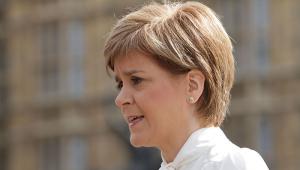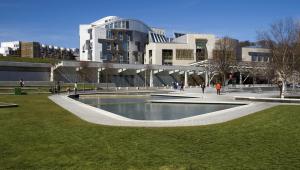Announcing her 14-Bill Programme for Government for the coming session – Holyrood’s equivalent of the Queen’s Speech at Westminster – Sturgeon accorded “top priority” to closing the attainment gap between school pupils from different socio-economic backgrounds, and confirmed a £750m package of spending, of which £100m will bypass local education authorities and go directly to head teachers.
"We must not tolerate a situation where some children from deprived areas do less well at school than those from affluent areas,” she told MSPs. "The measures we will implement over the next five years constitute a comprehensive approach to tackling that". It was, she said, her “defining mission”.
The extra money will come with a review of governance designed, Sturgeon said, to “empower schools and decentralise management.” Coupled with the funding going directly to schools, these plans have raised concerns in local government that ministers might want to marginalise councils as education authorities. New powers will also be devolved to island communities.
Sturgeon also moved to address concerns about the ability of the Scottish economy to underwrite her social policies. She announced a three-year £500m Scottish Growth Scheme to provide investment guarantees and loans of up to £5m for smaller companies, and a further £100m acceleration of infrastructure projects, with £4bn due to be spent in public capital projects next year.
The Scottish Growth Scheme marked “a new departure for the Scottish Government,” Sturgeon admitted: “It is an exceptional response to an exceptional economic challenge.”
The first minister hopes that the investment plans will bring Scotland sufficient economic impetus to fund an ambitious legislative agenda, which will include Bills to combat child poverty, ensure gender balance on public boards, expand social housing, create more apprenticeships, maintain current levels of college places, and cut childcare costs.
There will also be four Bills to implement the latest tranche of tax and social security powers devolved to Holyrood under the 2016 Scotland Act. The Scottish Government would create a benefits system based on “dignity and respect”, she added.
Having said that the Brexit vote makes a second Scottish independence referendum likely, Sturgeon has faced concerted calls from Opposition leaders to “stick to the day job” of running public policy.
She insisted that she would continue to pursue all available options to protect Scottish relations with the EU, but confirmed that civil servants are drafting a referendum Bill “so that it is ready for immediate introduction if we conclude that independence is the best or only way to protect Scotland's interests.”
This prompted Scottish Conservative Leader Ruth Davidson to urge Sturgeon to focus on “real and present problems” like the shortfall in GP recruitment, while Labour’s Kezia Dugdale accused the Scottish National Party government of failing to use existing devolved powers to the full to prevent Westminster cuts being passed on to the Scottish people.
That view was echoed by the Liberal Democrats’ Willie Rennie, who called for an extra 1p on the Scottish rate of income tax to raise money for education, while the Scottish Greens’ Patrick Harvie said that not enough progress had been made towards a "fairer, more equal and healthier” Scotland.



















